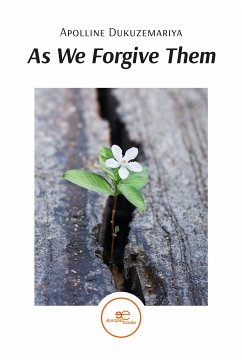Far from being a chronicle of the Rwandan genocide, As We Forgive Them narrates the story of one woman’s astonishing resilience and those who accompanied her on her journey, making her victory possible: from her childhood to her vocation to become a nun that turned out so differently, her marriage, and all the events that prepared her to face the indescribable.
This is a first-class testimony to the power of forgiveness in a generation that, more than ever, needs reminding of what it means to forgive and learn to rise beyond the trauma. Apolline had to face death and suffered deeply from it. Nevertheless, her life is a witness of how her faith in Christ Jesus helped her in these brutal circumstances. In the face of the unforgivable, she offered forgiveness and found inner healing.
A survivor of the Rwandan genocide, Apolline Dukuzemariya recounts her life trajectory in this book. Her story is a prime testimony to the power of forgiveness despite the unspeakable cruelty she faced.
Almost thirty years ago, on April 21, 1994, to be precise, she was massacred by ten militiamen and left for dead at her home in Butare, in the south of the country. Despite all odds, she held onto life, and eventually, Apolline managed to depart to Europe on humanitarian grounds. The long, slow healing process allowed her to reflect, read and pray.
Today, Apolline lives in Aigle in the canton of Vaud and is a naturalized Swiss.
This is a first-class testimony to the power of forgiveness in a generation that, more than ever, needs reminding of what it means to forgive and learn to rise beyond the trauma. Apolline had to face death and suffered deeply from it. Nevertheless, her life is a witness of how her faith in Christ Jesus helped her in these brutal circumstances. In the face of the unforgivable, she offered forgiveness and found inner healing.
A survivor of the Rwandan genocide, Apolline Dukuzemariya recounts her life trajectory in this book. Her story is a prime testimony to the power of forgiveness despite the unspeakable cruelty she faced.
Almost thirty years ago, on April 21, 1994, to be precise, she was massacred by ten militiamen and left for dead at her home in Butare, in the south of the country. Despite all odds, she held onto life, and eventually, Apolline managed to depart to Europe on humanitarian grounds. The long, slow healing process allowed her to reflect, read and pray.
Today, Apolline lives in Aigle in the canton of Vaud and is a naturalized Swiss.









